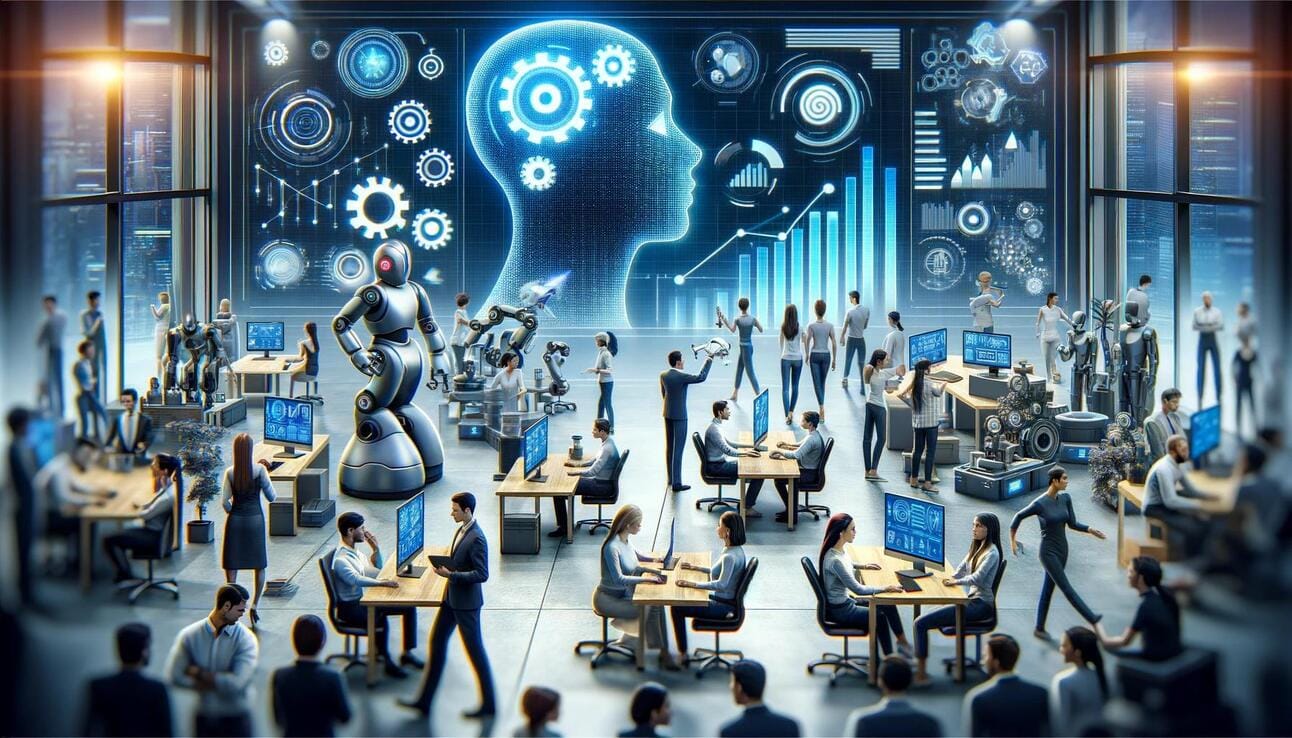Artificial intelligence (AI) is revolutionizing the job market, bringing substantial changes in productivity and wages across various sectors. Recent studies highlight the potential and challenges AI poses for workers and economies globally.
AI's Impact on Productivity and Wages
AI has shown significant potential to enhance productivity. According to a PwC report, sectors exposed to AI are experiencing nearly fivefold increases in labor productivity compared to less AI-integrated industries. This surge is primarily due to AI's ability to automate routine tasks, allowing human workers to focus on more complex and creative activities, thereby increasing overall efficiency and output.
Moreover, AI-driven jobs are in high demand, with postings for AI-related positions growing 3.5 times faster than for all other jobs. These roles not only offer more opportunities but also come with a substantial wage premium. In some markets, jobs requiring AI skills command up to 25% higher wages than non-AI roles. This trend underscores the economic value and competitive advantage that AI expertise can provide to both individuals and businesses.
Skills and Adaptation: The Key to Success
As AI reshapes the job landscape, the skills sought by employers are evolving rapidly. Workers in AI-exposed sectors need to acquire new skills to remain relevant. For instance, a significant shift in job requirements has been observed, with new skills appearing in job ads at a 25% higher rate than in less AI-integrated occupations. Continuous education and training programs are crucial to help the workforce adapt to these changes and leverage AI tools effectively.
Opportunities and Challenges
While AI offers numerous benefits, it also presents challenges, particularly in terms of job displacement and inequality. Advanced economies, where a higher percentage of jobs are AI-exposed, may see both significant productivity gains and disruptions. For example, up to 60% of jobs in these economies could be impacted by AI, with half potentially benefiting from enhanced productivity and the other half facing reduced demand or displacement.
In contrast, emerging markets might experience fewer immediate disruptions but could struggle to capitalize on AI's benefits due to infrastructure and skill gaps. This disparity highlights the need for comprehensive policies to support workers through transitions, ensuring that the advantages of AI are broadly shared and do not exacerbate existing inequalities.
Building a Future-Proof Workforce
To navigate these changes, businesses, governments, and workers must collaborate. Companies should adopt a skills-first approach, focusing on continuous development and internal mobility to fill AI-related roles. Policymakers should establish robust social safety nets and retraining programs to help displaced workers transition to new opportunities.
In summary, AI holds tremendous potential to drive economic growth, enhance productivity, and increase wages. However, realizing these benefits requires proactive efforts to equip the workforce with the necessary skills and to address the potential challenges of job displacement and inequality. By doing so, we can ensure a more inclusive and prosperous AI-driven future.
For more details, you can refer to the sources from PwC and McKinsey on AI's impact on productivity and the global job market.

